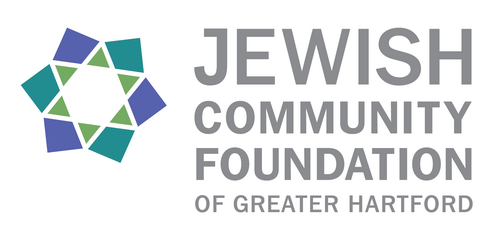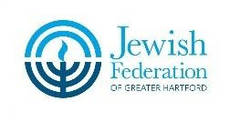Shabbat, Kashrut, and a Caring, Welcoming Community
Kashrut and Our Community
Beth David is proud to be an Orthodox synagogue committed to promoting halachah, while also taking great pride in our openness to Jews of all backgrounds and our inclusiveness of all households. As our community continues to grow, it is important that our understanding of kashrut standards are clear. We wish to empower our members to confidently fulfill the mitzvot of Gemilut Chasadim and Hachnasat Orchim; all congregants should be comfortable accepting meals prepared to assist in transitional times of life, and be comfortable eating in one another's homes.
Each individual is entitled to grow in their Jewish journey in their own time. The laws of kashrut and Shabbat are complex; the document below is intended to serve as a general guide to establish community standards. For questions about the specifics involved, please reach out to Rabbi Adler directly!
Gemilut Chasadim (Acts of Kindness)
The mitzvah of Gemilut Chasadim (Acts of Kindness), is a core value of our community. Everyone is able to fulfill this mitzvah, regardless of personal levels of observance. In considering how to fulfill this mitzvah, we respectfully ask that serious consideration be given to the following options:
-
If you are confident that your home meets Beth David's standards of kashrut (enumerated below), then please feel free to prepare food in your own kitchen for meal trains, etc.
-
If you are not confident that your home meets the standards, please consider fulfilling the mitzvah by purchasing kosher certified ‘chesed’ items from a store or establishment known for its kosher options. Note that this option is, of course, available to everyone regardless of personal kashrut standards. Rabbi Adler welcomes calls and emails regarding the kosher status of local establishments, and increasing individual kashrut observance.
Hachnasat Orchim (Welcoming Guests)
One of the hallmarks of a caring community is hosting friends and guests in our homes for Shabbat and Yom Tov meals. The community standards below are designed to empower everyone to extend and accept invitations for hospitality with the confidence that the food is kosher and that the food can be eaten and enjoyed according to the Laws of Shabbat. Hospitality need not be limited to Shabbat or Yom Tov. Weekdays and weekends, walks, game nights and almost any social invitation can be extensions of kindness and friendship, and excellent ways to make new friends.
Basic Kashrut Standards in Our Community
- All packaged/prepared/processed foods (except the few that do not require supervision) used to prepare meals should bear one of the kosher certifications accepted by our community. The links below are lists of recommended kosher certifications.
- https://kosherquest.org/kosher-symbols/
- https://www.akokosher.org/members
- New in our community, and not yet listed nationally, is Orthodox Kashrut of Connecticut (KCT). Questions regarding KCT should be directed to Rabbi Adler.
- Prepared ingredients that are used for the preparation of the meal should come into your home from either an approved establishment or from another home in which you are confident that kashrut standards are upheld.
- Milk and Meat foods and utensils should be properly separated. Milk and Meat dinnerware and utensils are identified by different patterns and colors.
- Fresh fruits and vegetables should be thoroughly washed, with special consideration to those items with greater chances of infestation of very small insects. Examples of items needing extra careful washing and checking include strawberries, raspberries, cauliflower, broccoli, and leaf vegetables and lettuces.
- Mistakes happen! If a mistake is made, proper procedures for kashering dishes, utensils, appliances, counters, etc. should be followed. If you have a concern, please reach out to Rabbi Adler to determine kosher status and how to rectify it, if necessary.
General Guidelines for Warming Food on Shabbat and Yom Tov
Warming Food on Friday Night:
- Food to be served on Friday night may be heated as normal and served as normal. Wet items like soups should be removed from their heat source, i.e. a stove top burner or counter-top hotplate (plata), before serving.
Warming Food on Shabbat Day:
- Only fully cooked, solid foods may be warmed on Shabbat day. Items to be warmed on Shabbat day should be set on a warming appliance that has not been turned ‘on’ on Shabbat. The use of a timer with a warming tray, or Star-K or OU approved Shabbat mode on an oven, is fully proper.
- All types of food may be placed in a crockpot before Shabbat, even though they will continue to cook on Shabbat. Items in crockpots should be removed from the base unit before serving.
- Refrigerator lights should be set to stay off for the duration of Shabbat and Yom Tov.
- Food may be cooked on a Yom Tov, and the cooking appliance needs to remain ‘on’ or remain in the ‘Shabbat mode’ until after the holiday ends. Timers may be used onYom Tov to turn ‘on’ and ‘off’ electric appliances. There are some models of stoves and ranges that may be adjusted on Yom Tov. Please contact Rabbi Adler with specific questions about specific appliances and brands.
- Preparation for the second day of Yom Tov should not commence until after the published time for candle lighting for that evening. This includes setting the table for the evening meal as well as warming or cooking items to be served at the evening meal. In the case of a three-day Yom Tov, please consult with Rabbi Adler on the proper way to create an Eruv Tavshilin.
- Every Shabbat and Yom Tov dinner and lunch should begin with Kiddush recited over wine or grape juice. Kiddush should be followed immediately by Netilat Yadayim (halachic washing of hands), and Motze over two complete loaves of challah, two rolls or two unbroken slices of matza.
- Every meal should conclude with recitation of Birkat HaMazon (Grace After Meals).
Tevilat Keilim (Immersion of Vessels)
Based on Torah law (Bamidbar/Numbers 31:23), new glass and metal cookware and dinnerware should be immersed in a mikvah. While compliance with this mitzvah or lack thereof does not impact the kosher status of the food for guests, it is a mitzvah about which every homeowner should be aware. An internet search of “tevilat keilim” will provide multiple sources for information about this mitzvah. Rabbi Adler welcomes calls from members wishing to learn about this mitzvah.







